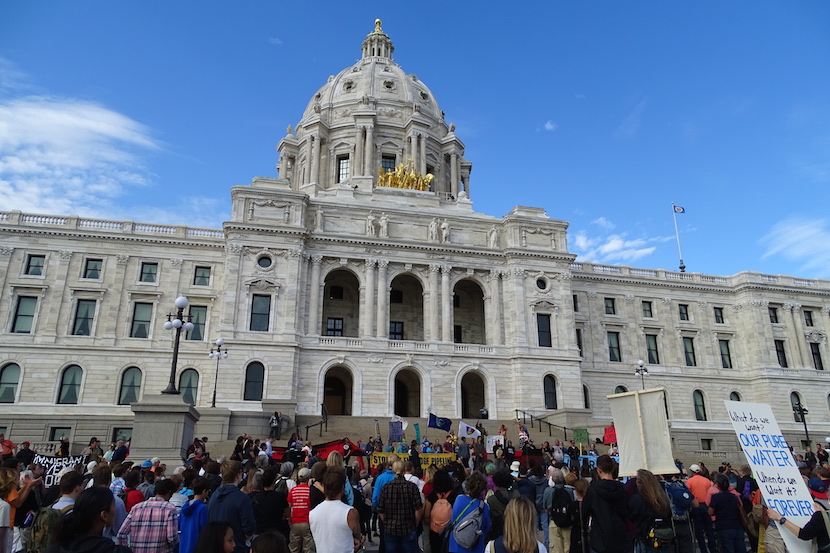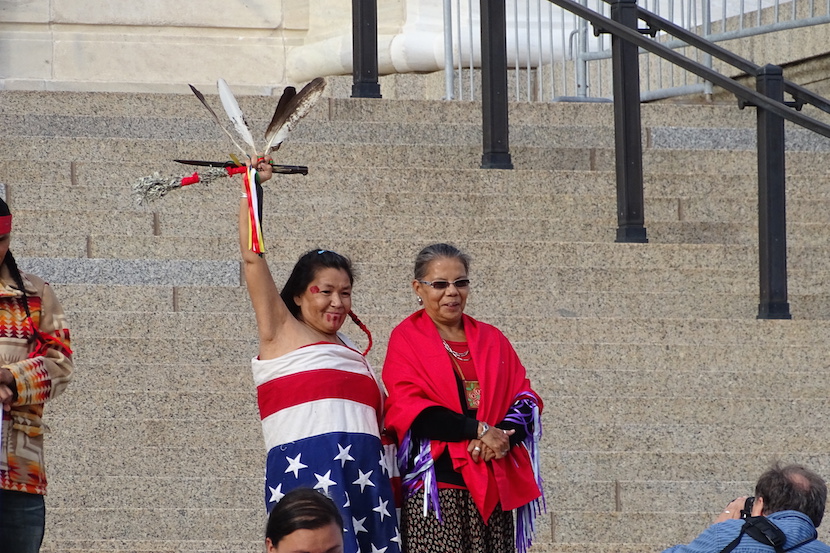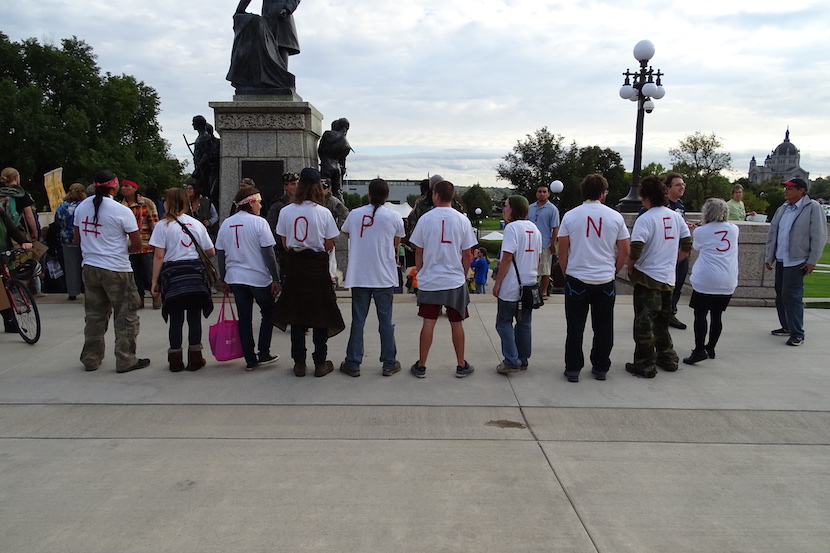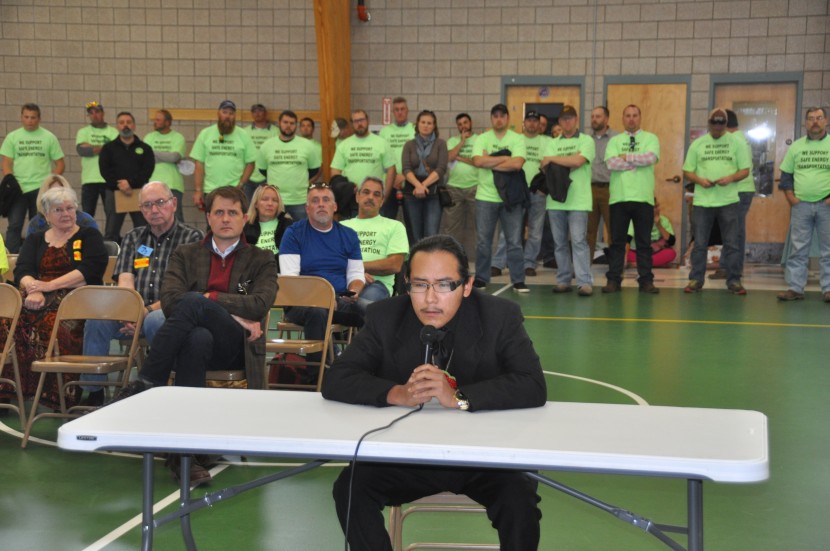
by Li Boyd Mille Lacs Band Member
Enbridge clearly felt the pressure after the Department of Commerce submitted testimony that the Line 3 expansion project is not needed early in September. As the joint Certificate of Need and Route Permit public comment hearings began, Enbridge chartered buses and paid their employees to flood these meetings and drown out indigenous and other anti-project voices. This tactic was used throughout the second comment period in the process, which was the last time the public was able to submit comment to the Public Utilities Commission, in person, on the Line 3 project. Written comments will still be accepted through Nov. 22. The evidentiary hearings, which will include testimony by expert witnesses and individuals for each party legally recognized in the approval process, will begin on Nov. 1 and take place at the Public Utilities Commission’s offices in St. Paul.
The fourth hearing in this step of the process was held at the St. Paul Intercontinental Hotel, following a demonstration and march from the state capitol to the venue. Hundreds of water protectors, both indigenous and non-indigenous allies, gathered together on the capitol steps to speak against the progress of this pipeline and then marched together more than a mile, with songs and chants that shut down streets in downtown St. Paul. While some Standing Rock alumni were disconcerted by the news helicopter that hovered over the march, reminding them of the constant air surveillance at the camps in North Dakota, the march had a positive and determined air. Many chanted “This is what democracy looks like!” on their way to the hearing.
Democracy itself seemed less transparent once the hearing started. Pipeline supporters were already in the building when participants for the rally arrived at the Intercontinental, leading some to believe that Enbridge bought rooms in the hotel to allow their supporters to arrive to the hearing first. When it was nearly time for the meeting to start, rally participants were escorted into the hotel and down to the event room where they were funneled through a door one at a time, as they needed to sign-in and submit their names to the judge if they wished to comment.
The hearing went well into its second hour with a barrage of pro-pipeline commentary. Finally, an indigenous woman stood from the crowd and asked why the names of the people coming in weren’t being added to the box from which the judge was selecting speakers. The judge claimed that all those still coming in were late arrivals and would therefore not be added until after halfway through the hearing for the night. As a group, protectors stood and objected, making it clear that everyone had arrived at the meeting at the same time. They persisted until the judge added the names to the comment pool, and only then were water protectors given the opportunity to speak.
Though some were allowed to speak after this and the judge went past the time of the scheduled hearing end to accommodate as many commenters as possible, many found the St. Paul hearing to be an uneasy experience at best.
This translated to other hearings around the state, such as in East Lake, where Enbridge admitted to busing in its own supporters and employees, some of whom were getting paid to be there. In Hinckley as well, Band members at the afternoon hearing sometimes did not have seating due to the numbers of attending Enbridge employees and interest groups.
Tensions came to a head at the evening session of the Duluth hearing when Enbridge supporters again flooded the venue be- fore the arrival of water protectors. This even extended to area parking and access, as tractor-trailers with loads of pipe and other pieces of heavy equipment were used to block parking areas and intimidate other participants. Venue security at the Duluth Entertainment Convention Center tried to block some indigenous people from entering the hearing, including jingle dress dancers, claiming the venue was full at capacity. Individuals were also told not to drum and pray inside the building. Those who were able to get inside the hearing were quickly dismissed by the judge for having already spoken at previous meetings.
When questioned by what method the judge was determining who had already spoken and who had not, the judge threatened to have the questioners removed from the meeting. After having gone unheard for so long and being once again told to go to the back of the line, water protectors confronted the judge, questioning the legitimacy of the hearing process altogether. The judge closed the hearing, leaving the venue, and the dialogue was suspended in Duluth.
Enbridge released a statement condemning the actions of the water protectors at the Duluth hearing, accusing them of being “extremists” and using intimidation tactics. Water protectors released their own statement pointing out that intimidation is the same tactic Enbridge and its supporters used that very day and has been using all along. In the words of water protectors, “We are not the ‘extremists’ in the room.”
Water protectors are simply tired — tired of being marginalized and not heard. While it’s unfortunate that an opportunity for public comment on this project was cut short, it is also worth noting that this occurred partially because citizens felt they were not being given the opportunity to speak. Activists are hopeful for the opportunity to be heard in Cross Lake and St. Cloud at the final two public comment meetings, but they are also aware that written comments may be the only avenue left available. These written comments can be submitted to publicadvisor.puc@state.mn.us or online at mn.gov/puc/line3/ participate/comment by 4:30 on Nov. 22.
Photos:
Among those who spoke at the East Lake hearing Oct. 11 in front of green-shirted Enbridge supporters were Algin Goodsky (top), Azhibik Aubid, Chinoodin, Dante Benjamin, Elizabeth Skinaway, Michaa Aubid, Natalie Boyd, Tania Aubid, and Veronica Skinaway.
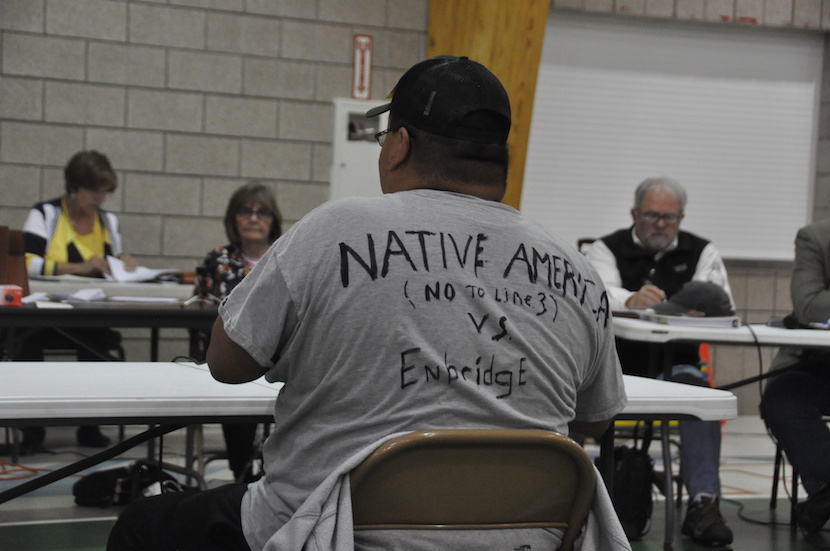
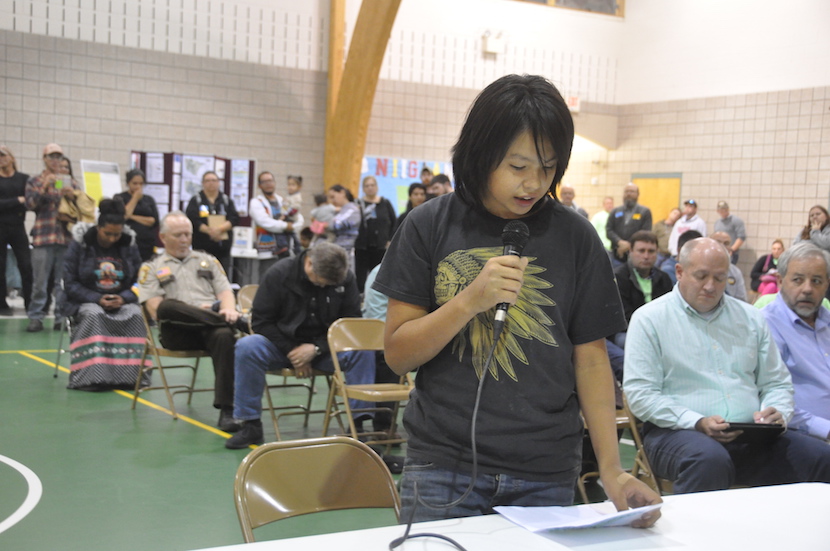
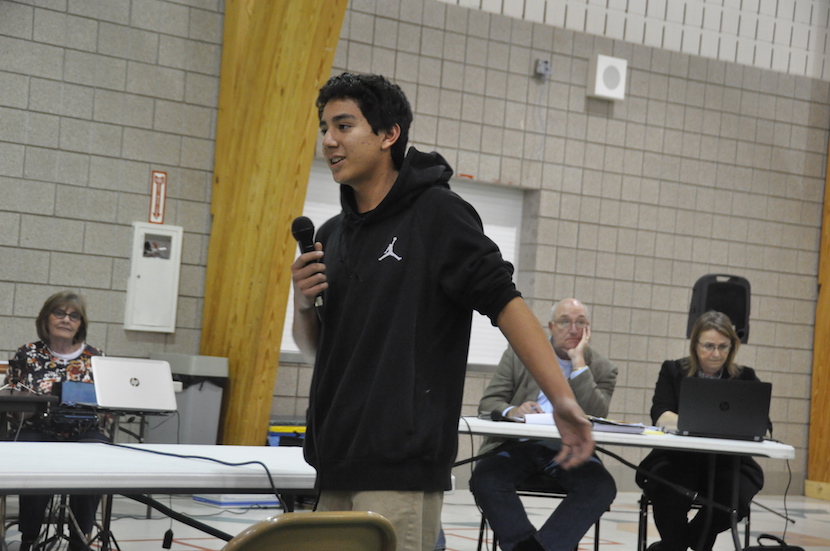
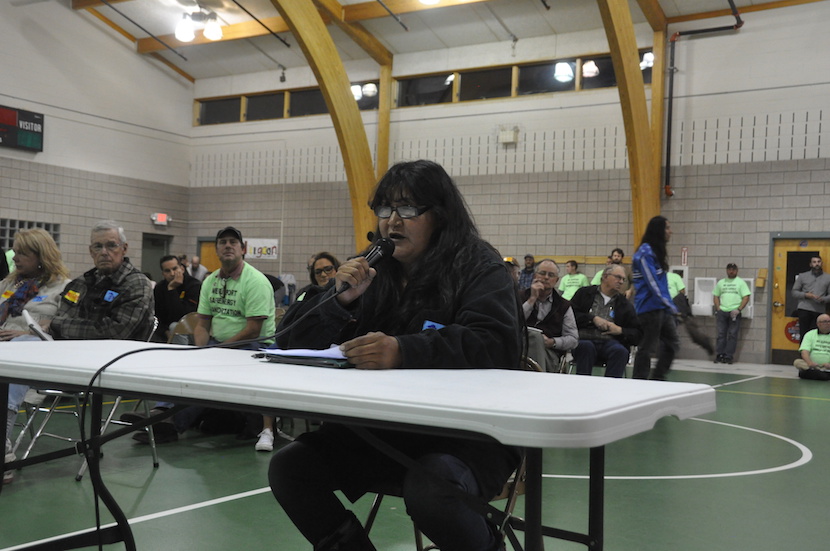
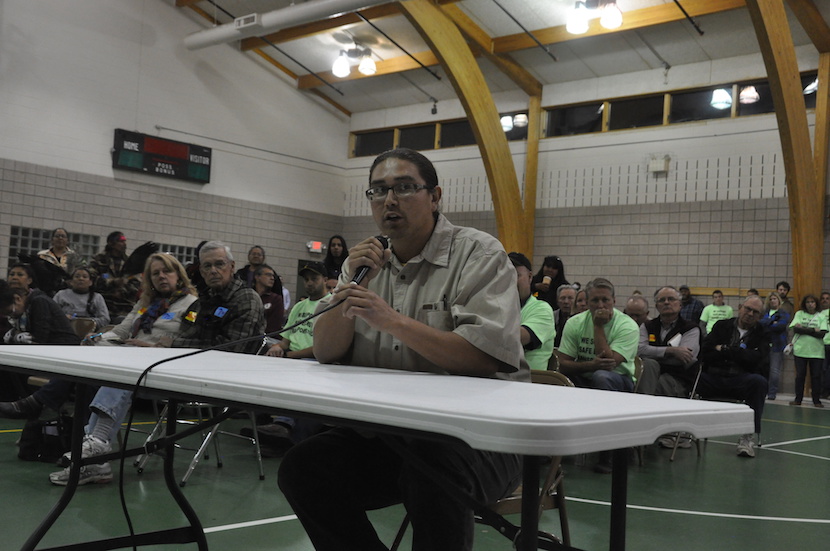
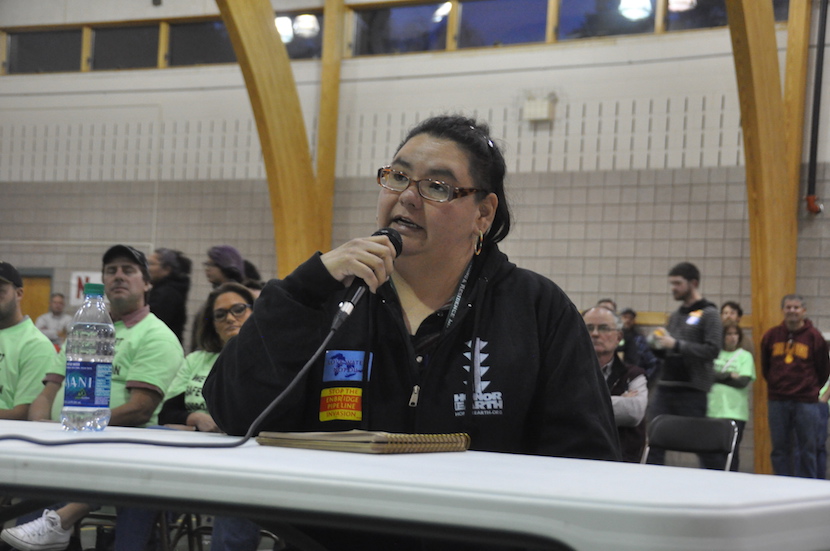
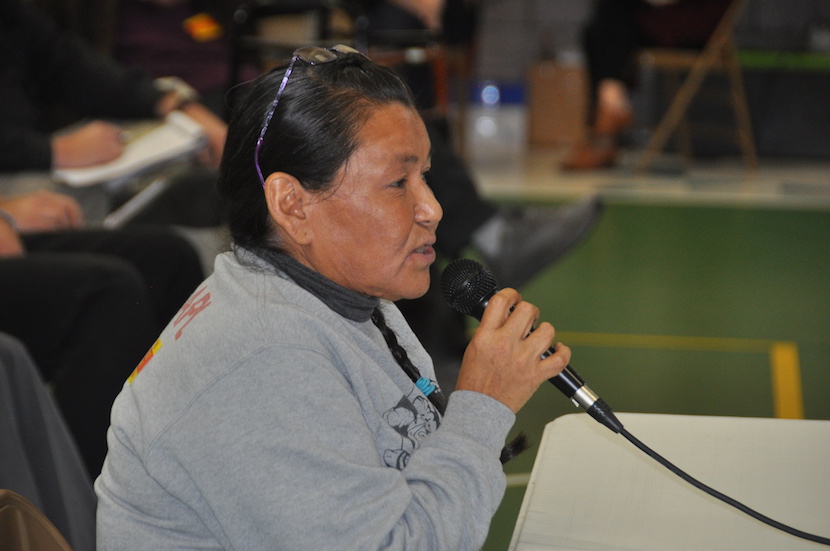
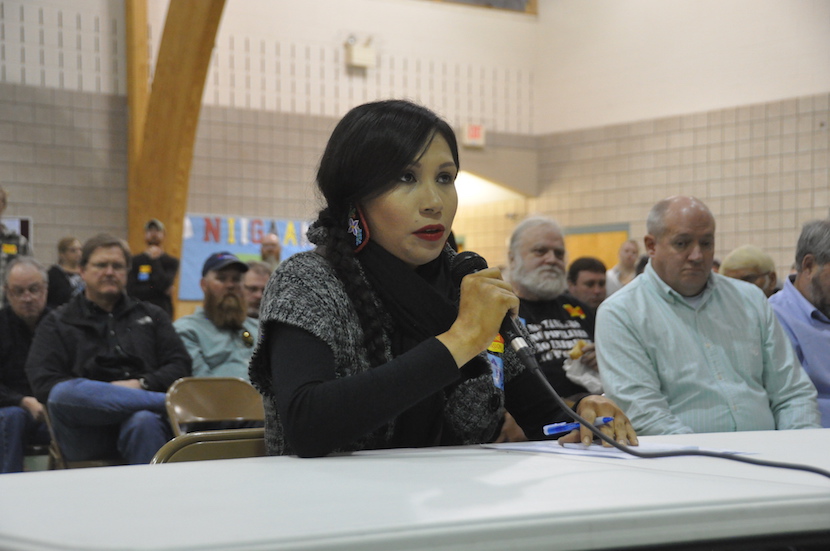
Bonnie Matrious was among the Band members who spoke at the Hinckley hearing on Oct. 12. Three busloads of Enbridge supporters were present at the event.
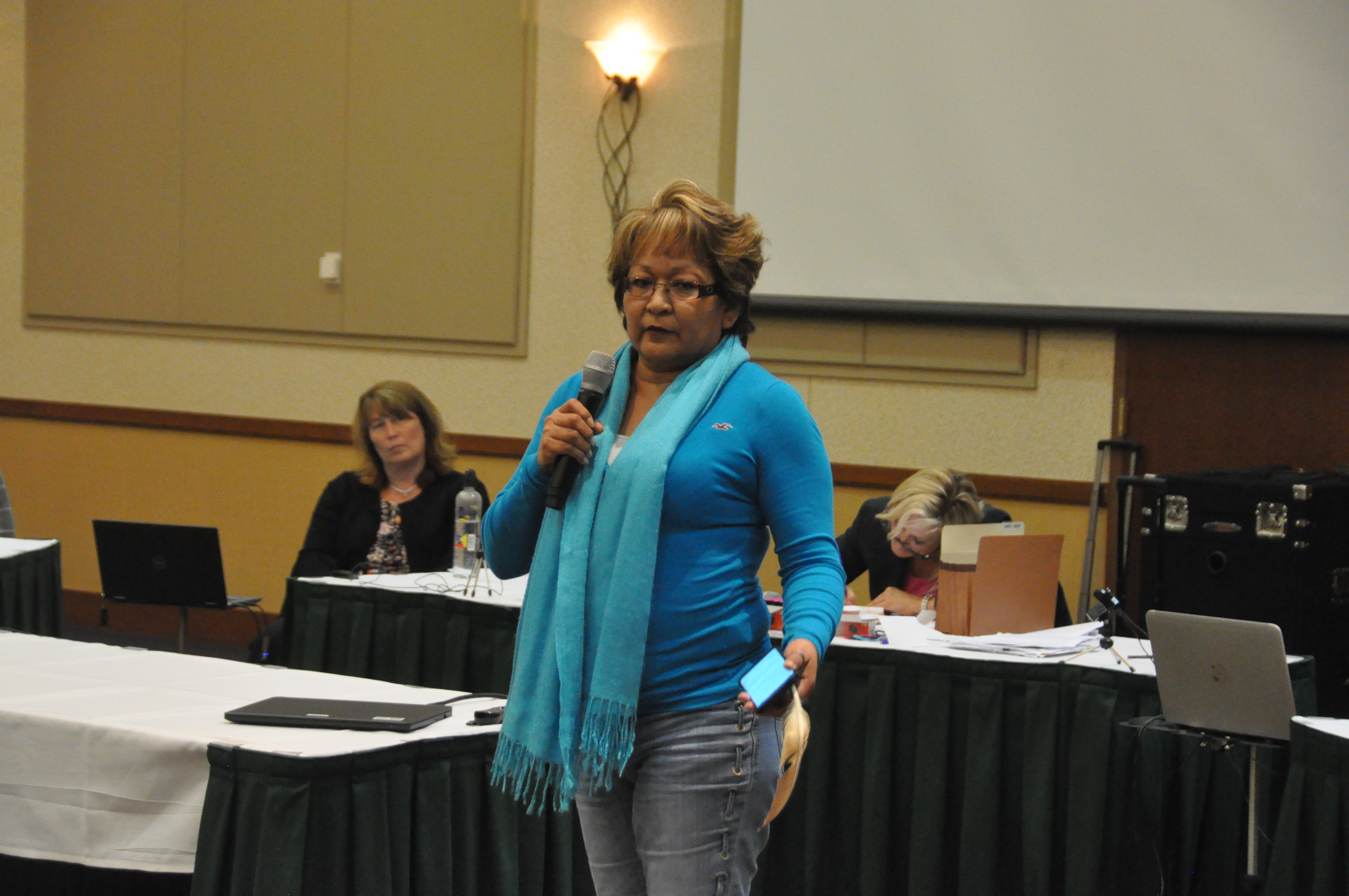
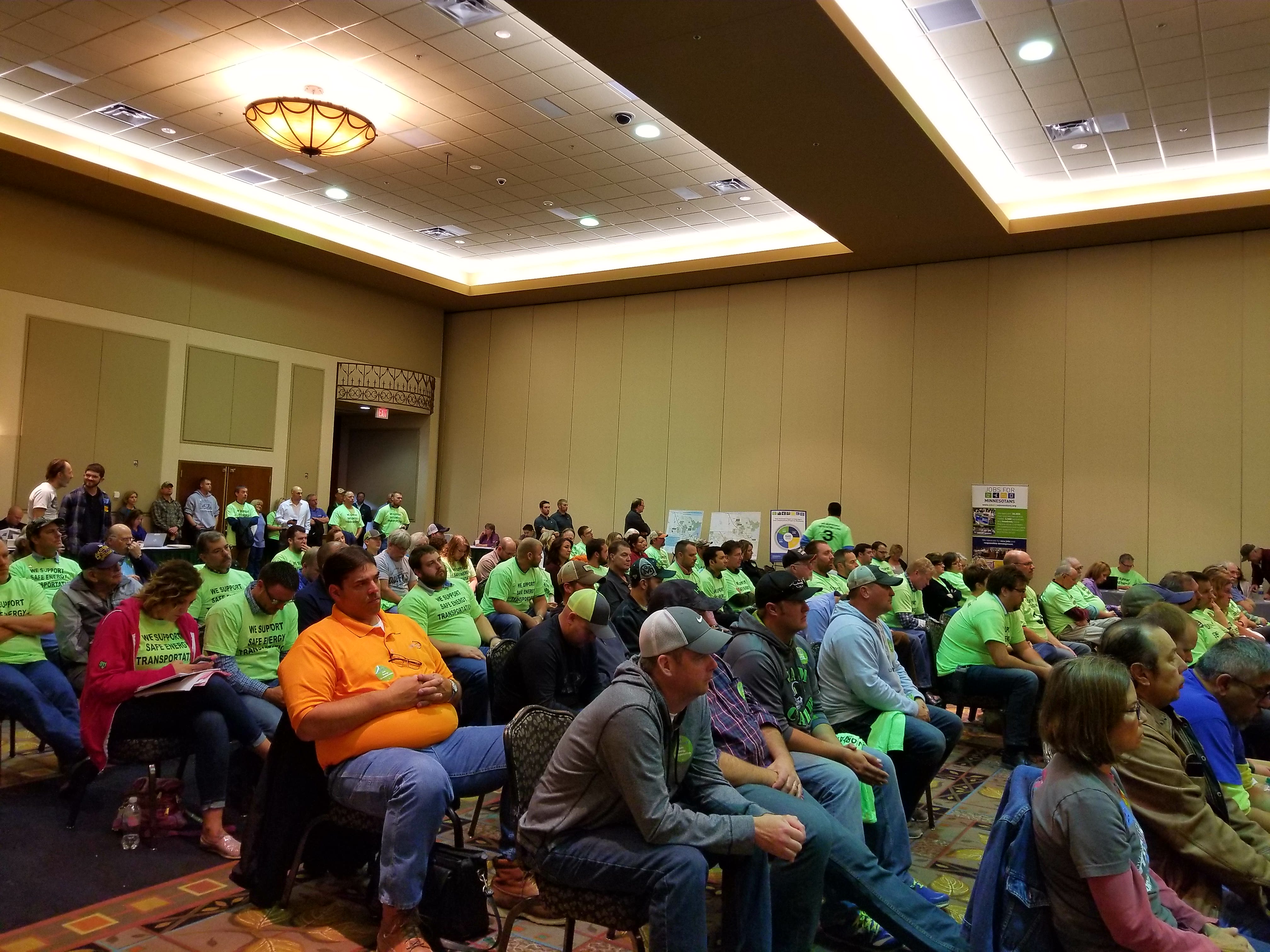
A rally at the state capitol on Sept. 28 preceded the public hearing at the InterContinental St. Paul- Riverfront.
